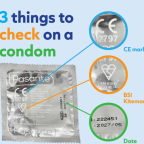Emergency Contraception
If you’ve had unprotected sex or a regular method of contraception has failed, you may be able to prevent getting pregnant by using emergency contraception.
Here you can find more information on some of the most common types, how they work, their effectiveness and their suitability to your needs.
Emergency contraception usually takes the form of either the emergency contraceptive pill (commonly known as the ‘morning after pill’) or an intrauterine device (an IUD or coil)
Emergency contraception is also available for free from a number of pharmacies please click here to find out your nearest pharmacy.
Emergency Contraception
If you’ve had unprotected sex or a regular method of contraception has failed, you may be able to prevent getting pregnant by using emergency contraception.
Here you can find more information on some of the most common types, how they work, their effectiveness and their suitability to your needs.
Emergency contraception usually takes the form of either the emergency contraceptive pill (commonly known as the ‘morning after pill’) or an intrauterine device (an IUD or coil)
Emergency Contraceptive Pill
The morning-after pill is a type of birth control that can be used to prevent pregnancy after unprotected sex. It contains synthetic hormones that stop or delay the release of the egg.
There are two common versions of the morning-after pill: Levonelle and ellaOne. Levonelle should be taken within 3 days of unprotected sex and ellaOne should be taken within 5 days. Neither is intended for regular use and you should avoid further unprotected sex while they are working.
There are no long-term or serious side effects associated with the morning-after pill. However, they may cause minor side effects such as headaches, stomach pain, nausea or some changes to your next period.
If you are taking regular birth control pills, you can continue to take them with Levonelle. However, you should wait 5 days if you take ellaOne.
IUD or Coil
The IUD is a type of birth control that can be used as emergency contraception or as regular contraception. It’s a small, plastic and copper device which is inserted into your womb by a doctor or nurse. The copper slowly releases into your body and stops the egg from becoming fertilised and attaching to the side of your womb.
The IUD is 99% effective at preventing pregnancy, which is slightly more effective than the morning-after pill. It can be used by most women and side effects are rare.
If you want, you can have the IUD removed once the risk of pregnancy has passed. Or, you can keep it in and use it as your regular form of birth control.
Using our online services:
Online access to all the sexual health services you need
Access free sexual health services at any time of the day through our dedicated online portal.
You can:
- Book and amend appointments
- Request STI self-testing kits
Phone Appointments
Discover what to expect from a consultation over the phone.
Clinic Appointments
Discover what to expect from a one-to-one consultation with a clinician.
FAQs
Clear answers to common questions
Contacting a sexual health service for the first time may be a little daunting, especially if you’re not keen on talking to someone. So, here are answers to some of the questions we get asked a lot.
What questions will be asked if I call the helpline?
You’ll be asked a few simple questions to understand your circumstances and the support you may need.
There is no rush, so take your time.
What support will I be offered?
We will support you in whatever way you need.
This may include talking through your situation, giving advice, helping you access things like protection or contraception, or organising a STI test.
What if I need a test?
We provide a quick and discreet STI self-testing kits for many of the most common infections.
If a different test is needed, we’ll help you with booking a confidential appointment at a local clinic.
Will I need a physical examination?
You may be invited to a confidential physical examination at one of our clinics, where a doctor will undertake any examination that’s needed.
You’ll be asked in advance if you are comfortable with the examination.
Who is told about my appointments or STI tests?
No one. Both your appointment and test result are completely confidential.
Your information is stored in a sexual health services medical record and is only shared with your GP or other professional if you agree.
How are tests taken?
If you do need to take a test, many can be taken from the comfort of your home by ordering one of our self-test kits – others may require a visit to a sexual health clinic.
You may be asked to provide either a urine or swab sample of the infected area or a blood sample may be needed in some cases. This will be explained before the test.
What if my test result is positive?
Firstly, please don’t worry, we deal with STIs all the time and almost all are now treatable.
You’ll be contacted by a professional to discuss your results and given advice on the treatment you may need.
In addition, we will offer any counselling and other forms of support you may need.









